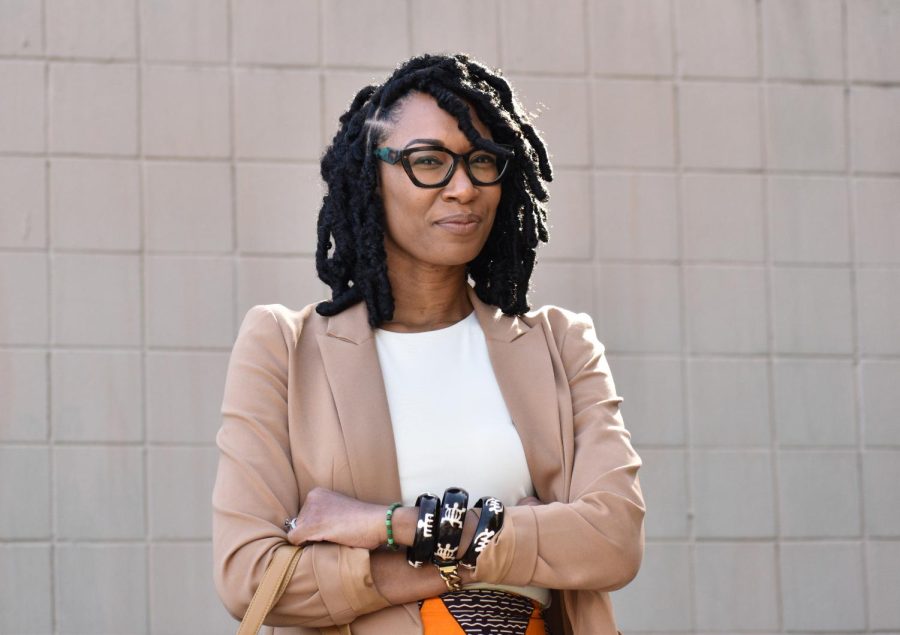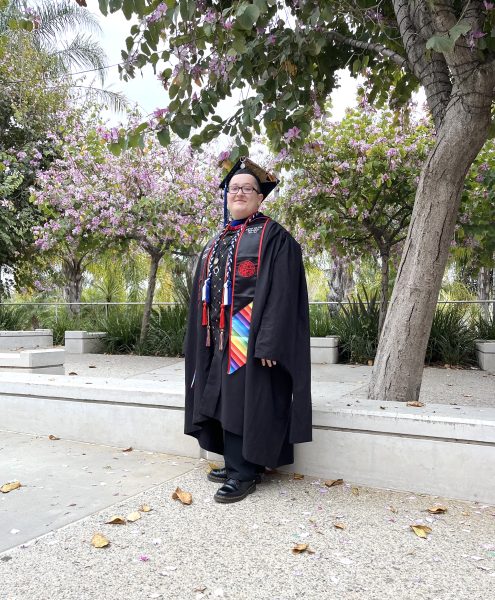CSUN professor shares what taught her to be ‘unapologetically Black’
CSUN professor Marquita Gammage poses for a portrait outside of the Plaza del Sol Performance Hall on the CSUN campus on Friday, Feb. 10, 2023, in Northridge, Calif.
February 21, 2023
The smell of red beans, rice, jambalaya and gumbo wafts through Marquita Gammage’s California home as she cooks for her husband and three children. The recipes passed down by her mother are delicious reminders of the New Orleans culture that shaped her.
There were no fewer than 14 people at a time in Gammage’s childhood home — seven of whom were siblings. Her mother offered up the three-bedroom shotgun house to shelter any family or neighbors in need.
Black women were anything but one-dimensional for Gammage.
“I grew up with rich cultures and traditions with beautiful colors and bold and vibrant lives that allowed me to know I could achieve my goals and be what I wanted to be,” she said. “I didn’t have to be what someone else thought I should be. I didn’t have to lower myself, I didn’t have to shrink myself, I didn’t have to be invisible.”
Gammage sits as the chair of CSUN’s Africana studies department, having earned her doctorate in African American studies from Temple University. Through her research, the professor works to dismantle what she sees as the negative stereotypes of Black women in the media. She wants the real experiences of her community reflected on the screen.
The 39-year-old professor said she rarely saw people like herself in the media growing up. The images she saw of Black women in the ‘80s and ‘90s were few and stereotyped. In rap videos, Gammage saw the slavery-era stereotype of the hypersexualized Jezebel, a Biblical reference used at the time to define Black women as having an insatiable sexual appetite.
Gammage observed another stereotype in the rise of reality TV: the aggressive Black woman. To combat this, Gammage saw her mother, sisters and aunts as motivational figures. Members of the Ninth Ward neighborhood in New Orleans surrounded her with their unique cultures stemming from Africa, Asia and the Caribbean.
The diverse group of Black women she met during her time as an undergraduate student at Howard University inspired her to challenge media images in her published research titled, “The Power of the Image: Rap Music Videos and the Representations of African American Females in the Hip-Hop Culture.” In 2015, Gammage published her book “Representations of Black Women in the Media: The Damnation of Black Womanhood.”
“I found that Black women didn’t subscribe to those images,” Gammage said. “They wanted to be seen as mothers, wives, community members, educators and important contributors to society.”
Gammage strives to work with students by cultivating leadership and collaborative skills, coaching them to be productive members of their community.
“Be your authentic self,” said Gammage. “Be unapologetically Black. Be unapologetically brilliant. Be unapologetically you. That is Black excellence.”










